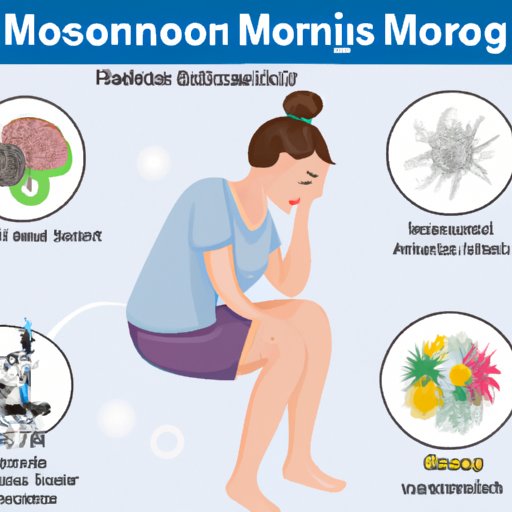
I. Introduction
Mononucleosis, also known as “mono,” is a viral infection that commonly affects teenagers and young adults. This illness is caused by the Epstein-Barr virus (EBV) and is known for causing extreme fatigue, sore throat, and swollen lymph nodes. In this article, we will discuss the symptoms to look out for, the different medical tests and diagnoses, preventative measures, coping strategies, and recovery and follow-up care for mono.
II. Symptoms to Watch Out For
One of the most common symptoms of mono is extreme fatigue. You may feel tired all the time, even after getting plenty of sleep. Another symptom to watch out for is a sore throat. This can make swallowing and talking difficult. Lastly, mono can cause the enlargement of the lymph nodes, which can be felt under the jaw or in the neck.
III. Medical Testing and Diagnosis
To diagnose mono, your doctor may perform a blood test to detect antibodies to the Epstein-Barr virus. Physical examinations may also be conducted to check for swollen lymph nodes, spleen, and liver.
IV. Risk Factors and Preventative Methods
Young adults and teenagers are at a higher risk of contracting mono, particularly those who have weakened immune systems. Mono is also contagious, so it’s important to avoid close contact with infected individuals. Maintaining good hygiene, such as regularly washing your hands, can help prevent the spread of the virus.
V. Coping with Mono
If diagnosed with mono, it’s important to rest and avoid certain activities that can increase the risk of rupturing the spleen. Drinking plenty of fluids can also help alleviate symptoms.
VI. Recovery and Follow-Up Care
Gradually returning to normal activities is important for a safe and healthy recovery from mono. It’s also important to attend follow-up appointments with your doctor to monitor your progress. Contact sports should be avoided for several weeks after recovery to prevent serious injury.
VII. Conclusion
In conclusion, mononucleosis is an illness caused by the Epstein-Barr virus and is commonly found in teenagers and young adults. Symptoms include extreme fatigue, sore throat, and swollen lymph nodes. If you suspect you may have mono, contact your doctor immediately to receive a proper diagnosis and treatment plan. Remember to take precautionary measures to prevent the spread of the virus, and to take the necessary steps to recover and maintain a healthy lifestyle.





